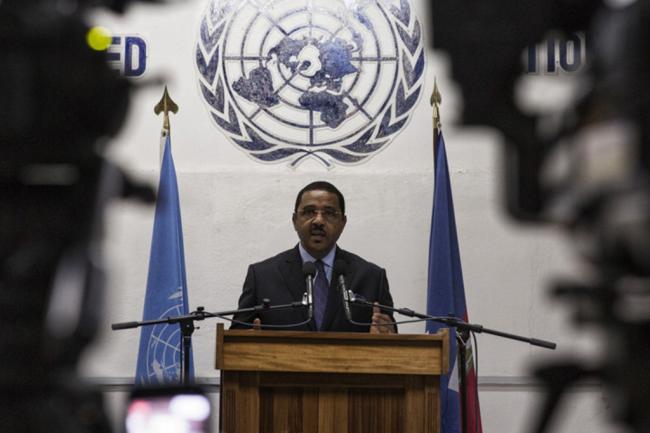
‘Imagine the potential of one billion children;’ UNICEF urges investment in Africa’s youth amid major demographic changes
“Investing in health, protection, and education must become an absolute priority for Africa between now and 2030,” said Leila Pakkala, UN Children Fund (UNICEF) Regional Director for Eastern and Southern Africa.
According to UNICEF’s report Generation 2030 Africa 2.0, some 11 million education and health personnel will be needed to keep pace with the projected unprecedented population growth of children in Africa – an increase of 170 million children between now and 2030.
“We are at the most critical juncture for Africa’s children,” Pakkala underscored. “Get it right, and we set the foundation for a demographic dividend, which could lift hundreds of millions out of extreme poverty, and contribute to enhanced prosperity, stability, and peace.”
The report identifies three key issues for investment: health care, education and the protection and empowerment of women and girls. Concretely, to meet minimum international standards in health care and best practice targets in education, Africa will have to add 5.6 million new health workers and 5.8 million new teachers by 2030.
According to the report, almost half of the continent’s population is under 18 years old – and the majority of the population in around one-third of the 55 African Union member States is children. Current projections foresee the number of Africa’s children topping one billion by 2055.
‘Imagine the potential of one billion children’
“Imagine the potential of one billion children,” said Marie-Pierre Poirier, UNICEF’s Regional Director for West and Central Africa. “If Africa steps up its investments in children and youth now, transforms its education systems and empowers women and girls to participate fully in community, workplace and political life, it will be able to reap faster, deeper and longer dividends from its demographic transition.”
Conversely, if investments do not occur in Africa’s youth and children, the once-in-a-generation opportunity of a demographic dividend may be replaced by a demographic disaster, characterized by unemployment and instability.
UNICEF recommends three policy actions to create the socio-economic conditions for Africa’s coming generations.
The first is to improve health, social welfare, and protection services to meet international standards; or beyond, in countries close to attaining them.
Secondly, it recommends Africa's educational skills and vocational learning system be adapted through curricula reform and access to technology to meet the needs of a twenty-first century labour market.
The report also prescribes that Africa secures and ensures the right to protection from violence, exploitation, child marriage and abuse; removes barriers preventing women and girls from participating fully in community, workplace and political life; and enhances access to reproductive health services.
Photo: UNICEF/Mony (file)
Source: www.justearthnews.com
Support Our Journalism
We cannot do without you.. your contribution supports unbiased journalism
IBNS is not driven by any ism- not wokeism, not racism, not skewed secularism, not hyper right-wing or left liberal ideals, nor by any hardline religious beliefs or hyper nationalism. We want to serve you good old objective news, as they are. We do not judge or preach. We let people decide for themselves. We only try to present factual and well-sourced news.







